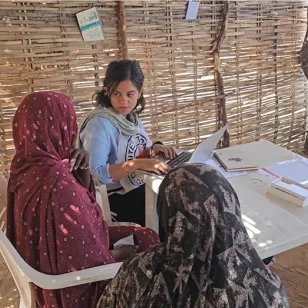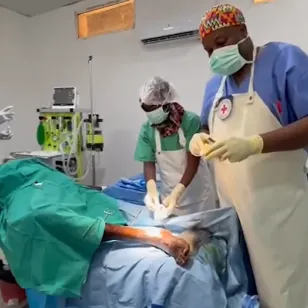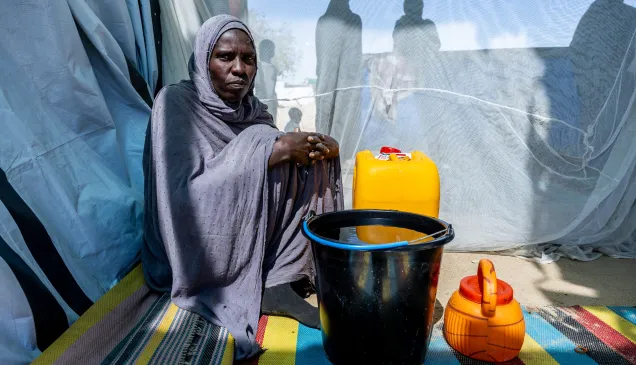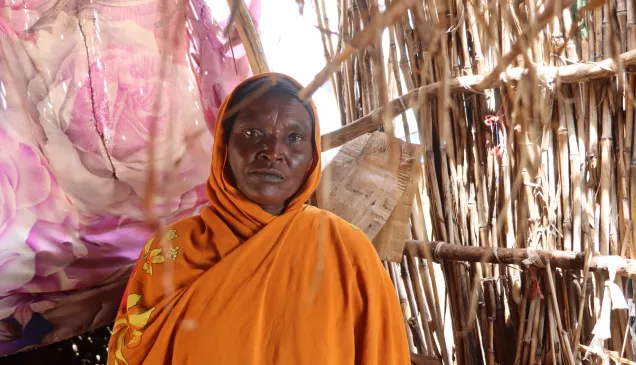Sudan: Families fleeing Al-Fasher recount harrowing violence as dire needs rise
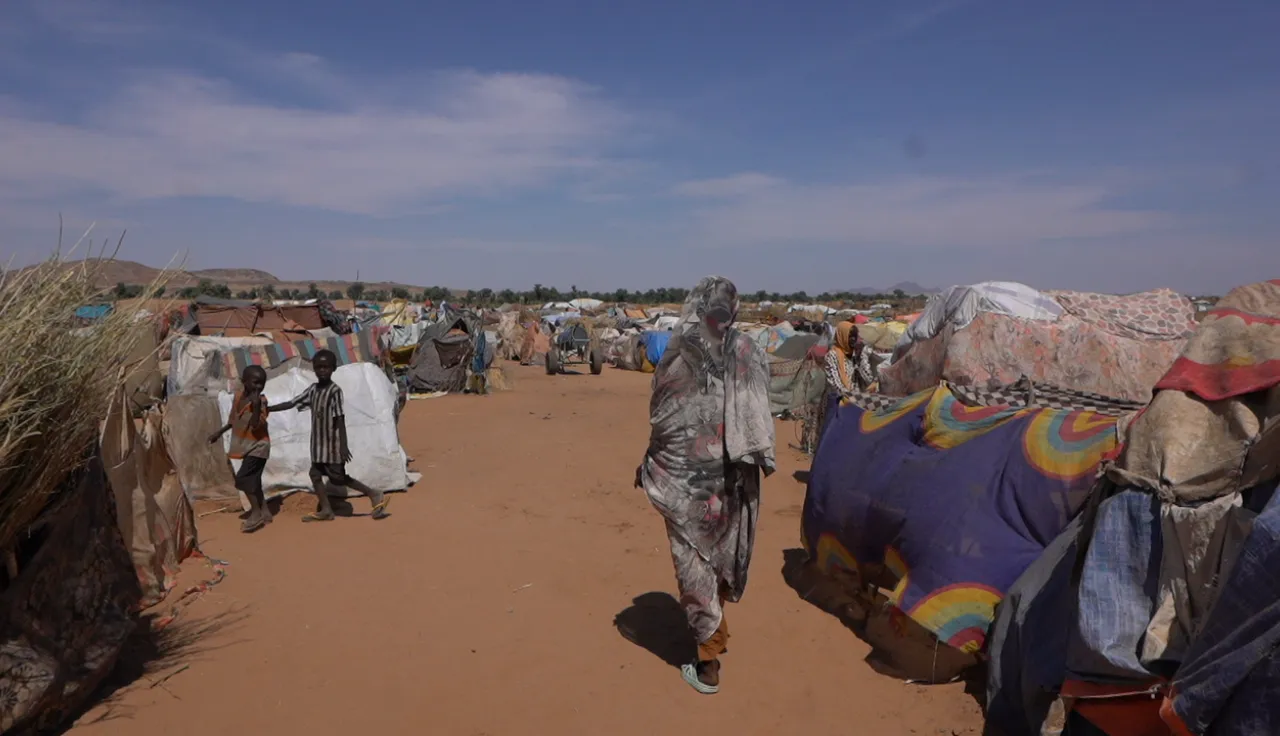
Photo: Mohamed Jamal/ICRC
After months of heavy fighting, thousands of families have fled the Sudanese city of Al Fasher and, in recent weeks, reached the town of Tawila - exhausted, hungry and carrying almost nothing. Teams from the International Committee of the Red Cross (ICRC) assisting new arrivals report that the flow is increasing daily, as civilians escape violence, food shortages and the collapse of medical services.
Those who fled Al Fasher described attacks and scenes of panic as they left the city. Jamila Ismail, a mother of seven, recalled desperately searching for her son after a local market was attacked. “I thought he might have been killed,” she said. “I searched for him among the dead at the market. Bodies were scattered everywhere. The situation was chaotic and heartbreaking. Some were crying and begging to be treated, but no one could help them. Everyone was busy treating the ones they knew. I kept looking for my son, hoping I would find him. But I couldn’t.”
She eventually found her son Ibrahim alive, though severely wounded. He had been taken to one of the few medical structures still functioning in the city. With the support of a neighbour, Jamila and her family managed to flee. They are now in Tawila, joining thousands of others who recount similar stories of death, abuse and of losing contact with their loved ones.
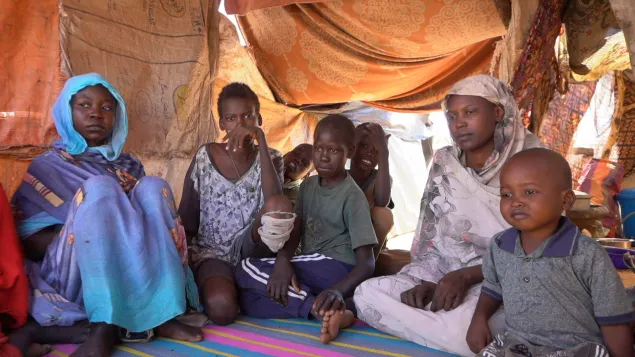
Jamila Ismail, a mother of seven, recently fled Al Fasher for Tawila. She recalled the difficult times her family endured and how her son, Ibrahim, nearly died after an attack on a local market.
Tawila has rapidly become the epicentre of the humanitarian response in North Darfur, with makeshift camps absorbing hundreds of displaced civilians from Al Fasher every day. Conditions are dire: families struggle to access food, water, shelter and medical care.
Hussein Ibrahim Rasool, the ICRC’s deputy economic security coordinator in Sudan, described the scale of the crisis and the ongoing response. “Thousands of families have been forced to flee their homes as a result of the conflict. They have arrived here in Tawila, and more are arriving every day. They are mostly women, children and the elderly. Their situation is extremely difficult. They are not even able to cover their basic needs. They are hungry, thirsty, traumatised and exhausted. Some are injured or sick and have lost contact with their loved ones.”
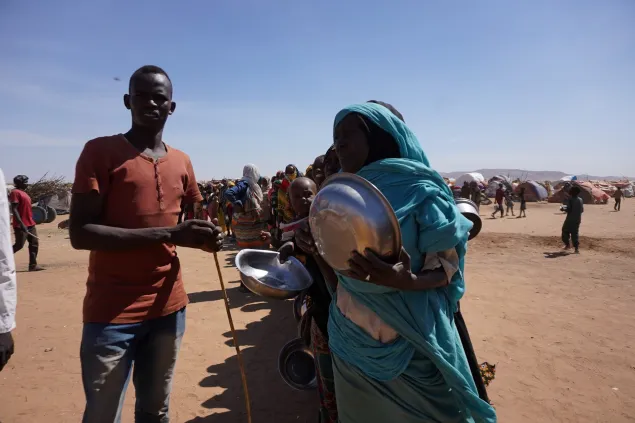
Conditions in Tawila are dire, with families struggling to access food, water, shelter and medical care.
ICRC teams in Tawila
In Tawila, the ICRC has significantly scaled up our humanitarian response to meet the critical needs of affected communities. Together with the Sudanese Red Crescent Society (SRCS), ICRC teams have provided financial assistance to 10,000 families – around 60,000 displaced people – and are expanding support to cover an additional 12,000 households, reaching approximately 72,000 people.
The ICRC is also supplying essential medical materials and operational support to the MSF-supported hospital and nearby medical points, including dressing materials, staff incentives and contributions to running costs.
The conflict has separated countless families. The ICRC has registered approximately 7,000 missing persons in relation to the conflict in Sudan. In Tawila, the ICRC and SRCS have helped families reconnect by facilitating hundreds of phone calls between separated relatives.
ICRC in the wider region
The humanitarian crisis in Tawila forms part of a much broader emergency affecting millions across Sudan. Despite insecurity, access constraints and the scale of needs, the ICRC continues to work across several regions to support civilians affected by the conflict. This includes:
- Supporting overstretched health services:
Delivering medical supplies, surgical materials and essential medicines to health facilities where services have collapsed or are under severe strain. The ICRC also provides incentives to health staff and helps keep critical structures functioning. - Economic assistance for families displaced by the conflict:
Cash assistance, delivered jointly with the SRCS, enables families to purchase food, water, medicine and other essentials according to their own needs. This support is often the first lifeline for newly displaced households. - Restoring family links:
With thousands of people reported missing, the ICRC and SRCS work to reunite families through phone calls, tracing services, and follow-up on missing persons cases across multiple states. - Support to emergency responders:
The ICRC assists first responders and community volunteers, providing equipment, training and logistical support to help them respond safely and effectively in areas affected by violence. - Advocating respect for international humanitarian law (IHL):
As the conflict escalates, the ICRC continues to remind all parties of their obligations under IHL – including the protection of civilians, medical personnel and humanitarian workers, and the imperative to facilitate impartial humanitarian assistance.
Across Sudan, these activities aim to reduce suffering, preserve dignity and help families survive the rapidly deteriorating humanitarian situation.
More about our work in Sudan
- Frequently asked questions: Our work in Sudan
- Operational update - ICRC response in and around Al Fasher, North Darfur
- ICRC president: World leaders must act to end the indiscriminate killing in Sudan
- Sudan: “The people of Al Fasher cannot be abandoned”
- Sudan faces worst cholera outbreak in years as war devastates infrastructure
- “We arrived from Sudan with nothing but our lives”

